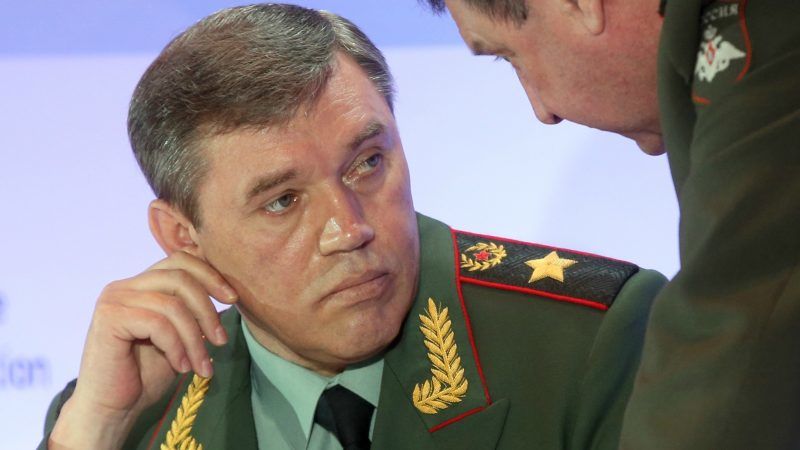The tension between the North Atlantic Treaty Organization (NATO) and Russia continue to simmer due to the alliance’s military presence in the Baltic Sea region that directly borders Russia.
Speaking at a briefing for military attaches on Tuesday, Valery Gerasimov, Chief of Russia's General Staff and First Deputy Defense Minister, called NATO military exercises in the Baltic region and the Black Sea, “a preparation for large-scale conflict.”
“Military activity is intensifying in the Baltic countries and Poland, in the waters of the Black and Baltic Seas, the intensity of block’s military exercises is increasing,” TASS quoted Gerasimov as saying within the briefing for foreign military attaches in Moscow. “Their scenarios point to NATO’s targeted preparation for engaging its forces in a large-scale military conflict.”
As the world’s second strongest military power, Russia has repeatedly voiced concerns over the expansion of NATO’s presence along the borders.
Yet the alliance considers Russia as the biggest threat facing NATO today due to what the bloc considers to be Russia’s destabilizing behavior, particularly along NATO’s borders.
Addressing the military attaches, Gerasimov said the alliance promotes an idea of a “Russian military threat,” recalling Brussels' doctrinal documents that have assigned adversary status to Russia.
He also pointed out during his remarks that the bloc announced it has completed the formation of forces within the “Four Thirties” initiative during the recent NATO summit held in London. Under the initiative, which was adopted in 2018, 30 mechanized battalions, 30 air squadrons and 30 combat vessels are to be ready within 30 days or less.
Meanwhile, NATO’s member states’ defense spending has increased by $130 billion, and by 2024 it is planned to increase it by $400 billion, according to Gerasimov. Moscow’s top general stressed that the actions of the alliance are increasing tensions and reducing the level of security along the border between Russia and NATO members.
“The reduction of risks of dangerous military incidents should remain the most important area in the dialogue between Russia with the United States and NATO. It is necessary to resume interaction between Russia and NATO in order to resolve the accumulated problematic issues,” Gerasimov said.
Gerasimov underscored the importance of the mandatory use of cockpit transmitters, known as transponders, by NATO and Russian aircraft flying above the Baltic Sea. The proposal to do so was first offered in 2016 after two years of several near misses between Western airplanes, both civilian and military, and Russian jets in the skies above the Baltic region that NATO had patrolled since the Ukrainian crisis.
“It is necessary to improve the mechanisms for preventing dangerous military activities, including clarifying the order of signal exchange and determining the minimum allowable distances between warships and aircraft,” he said.
When asked if he believes a major war could break out by 2050, Gerasimov said there are no immediate prerequisites for a full-blown war, although he considers the situation unstable due to political, economic and information-related pressure placed on independent actors such as Russia.







 Armenian sappers commenced on Monday mine-clearance operations in the territories adjacent to the Saint Mary Church in village of Voskepar (Armenia...
Armenian sappers commenced on Monday mine-clearance operations in the territories adjacent to the Saint Mary Church in village of Voskepar (Armenia...
 Iran and Pakistan have signed eight cooperation documents in various fields, and agreed to strengthen ties to fight terrorism in the region.
Iran and Pakistan have signed eight cooperation documents in various fields, and agreed to strengthen ties to fight terrorism in the region.
 President Aliyev emphasized the critical role of the North-South Transport Corridor in fostering transport cooperation between Azerbaijan and Russi...
President Aliyev emphasized the critical role of the North-South Transport Corridor in fostering transport cooperation between Azerbaijan and Russi...



